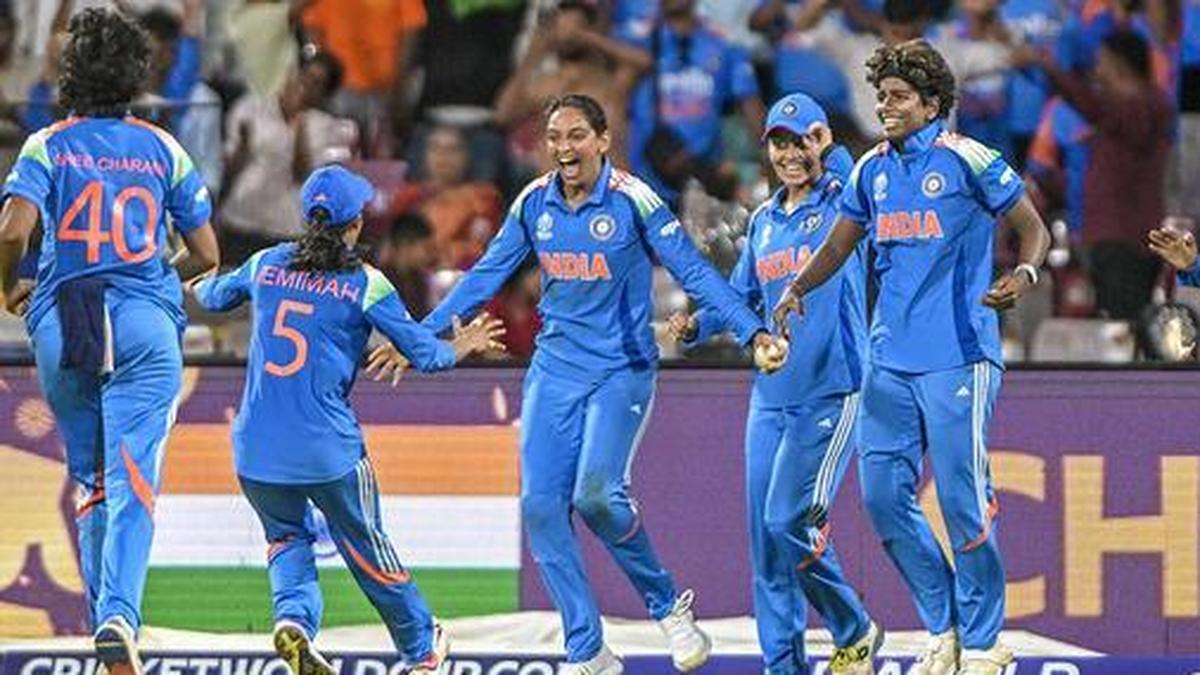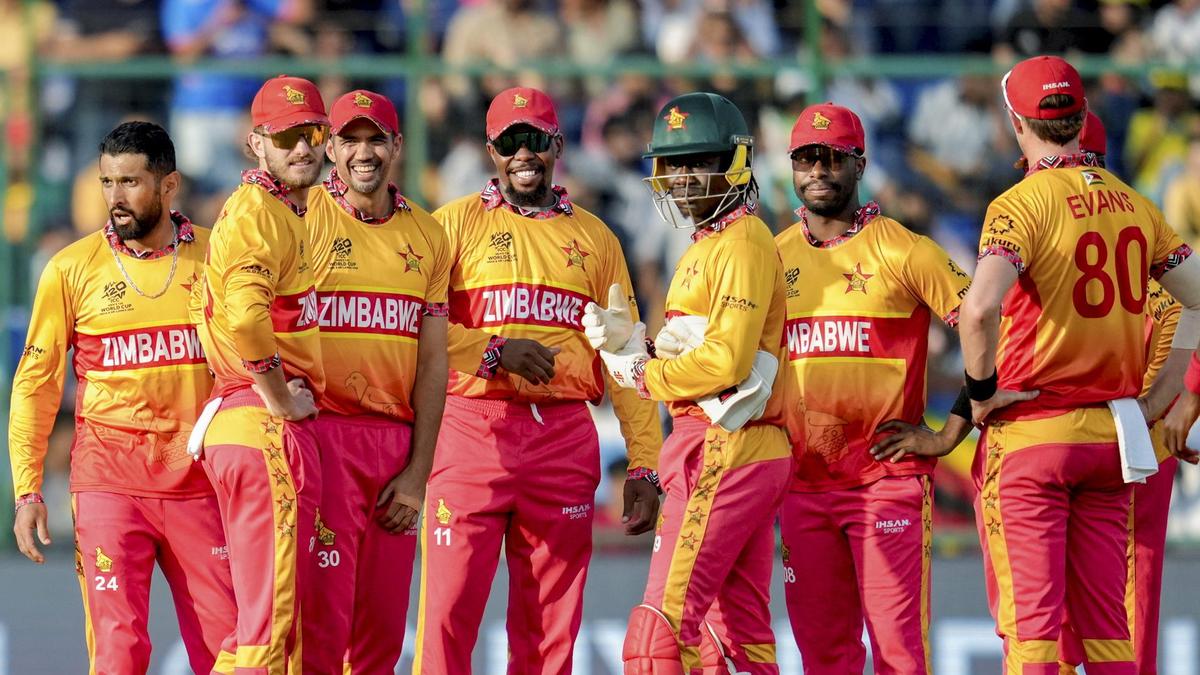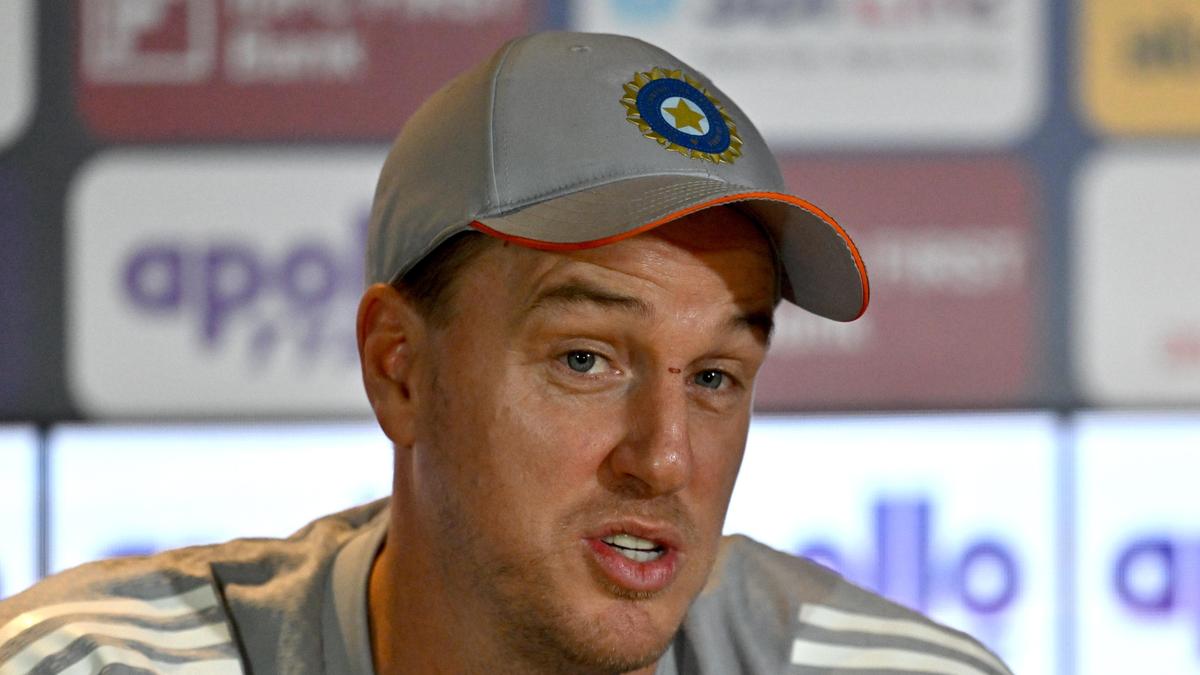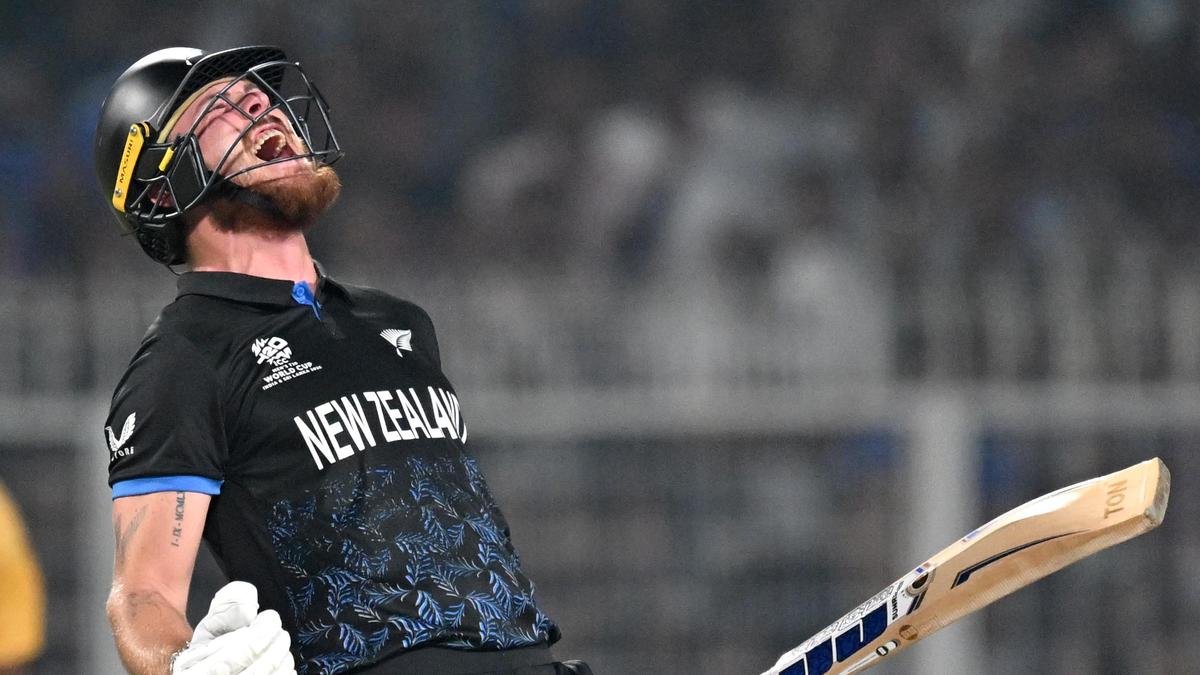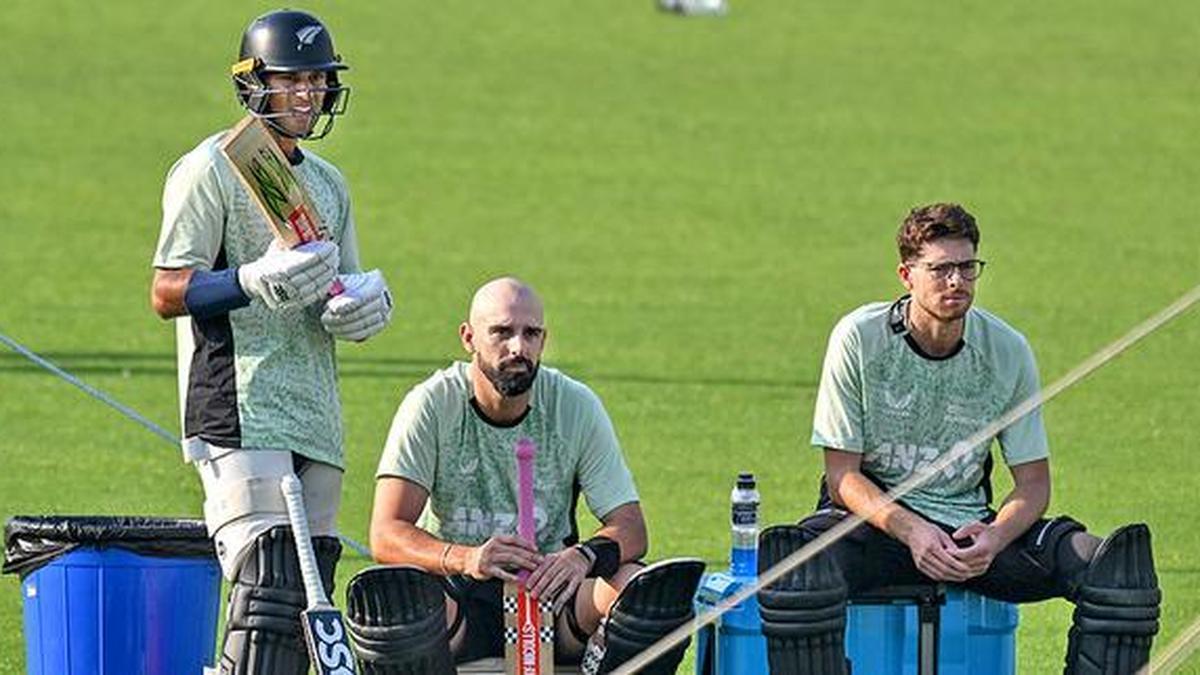Harmanpreet Kaur celebrates with teammates after the final.
| Photo Credit: EMMANUAL YOGINI
The Indian women’s World Cup win was not just a sporting achievement, but a cultural one. It might turn out to be a political one too, but that will depend on societal changes and governmental attitudes.
The 2017 tournament saw the transition of Harmanpreet Kaur from player to legend. Her unbeaten 171 in the semifinal victory against Australia gave Indian women’s cricket credence and self-confidence. Eight years later, it is fitting that the maiden triumph came under her captaincy. Harmanpreet, Deepti Sharma, Shafali Verma and the rest kept a country awake beyond midnight, and too excited to sleep thereafter. But no one is complaining.
The Prime Minister congratulated the team with “This historic win will motivate future champions to take up sports.” Easily said, but not so easily done. Especially when out of the spotlight there are predators who, often with political backing, get away regularly. Hyperbole comes fast, but reality is slow to catch up. Parents already averse to having their daughters in sport will be discouraged if harassers go unpunished.
As Sakshi Malik, India’s only woman wrestler to win an Olympic medal said after the protests against the Wrestling Federation boss, “This fight is not for India’s female wrestlers. It is for the daughters of India whose voices have been silenced time and again.”
A reference to the protests of 2023 might seem out of place in this celebration of the World champions. But women in sport have many battles to fight — at home, in society, among peers, against official apathy and shameless harassment — giving international success a special lustre. Many politicians and male cricketers now rushing to congratulate the team were strangely silent during those protests. This triumph has messages for parents, officials and politicians.
The Prime Minister is right in a sense. It will motivate future champions, just like the men’s inaugural victory in 1983 (watched on television by 10-year-olds Sachin Tendulkar and Rahul Dravid) did. When the women’s team that lost the 2017 final arrived back home, teenager Jemimah Rodrigues was at the airport to welcome them. Today she is one of the superstars.
Jemimah Rodrigues played a key role in India’s triumph.
| Photo Credit:
EMMANUAL YOGINI
The 2017 World Cup had a profound impact on women’s cricket in India; 2025 might have a wider influence. The packed crowd, the shouts of Jemi-Mah, Jemi-Mah as India’s semifinal hero walked out to bat indicate the revolution that began eight years ago led here.
In this period, the sport has seen more money come into it, greater professionalism and the certainty that it can be a career. The Board of Control for Cricket in India can take some of the credit for this, as well as for establishing the Women’s Premier League. The change in the sporting culture of a nation is welcome if overdue.
But patriarchy and religious extremism will not give in easily. The case of the Australian cricketers molested on their way to a coffee shop in Indore is one aspect of this. Another is the trolling Jemimah was subjected to even after leading India’s charge into the final. Simply because she is Christian, and there were fake stories about conversions. Jemimah will be remembered as a superstar of this World Cup, but rather than celebrating an Indian team with its diversity of religions, communities, geographical spread, the bigots chose to attack her.
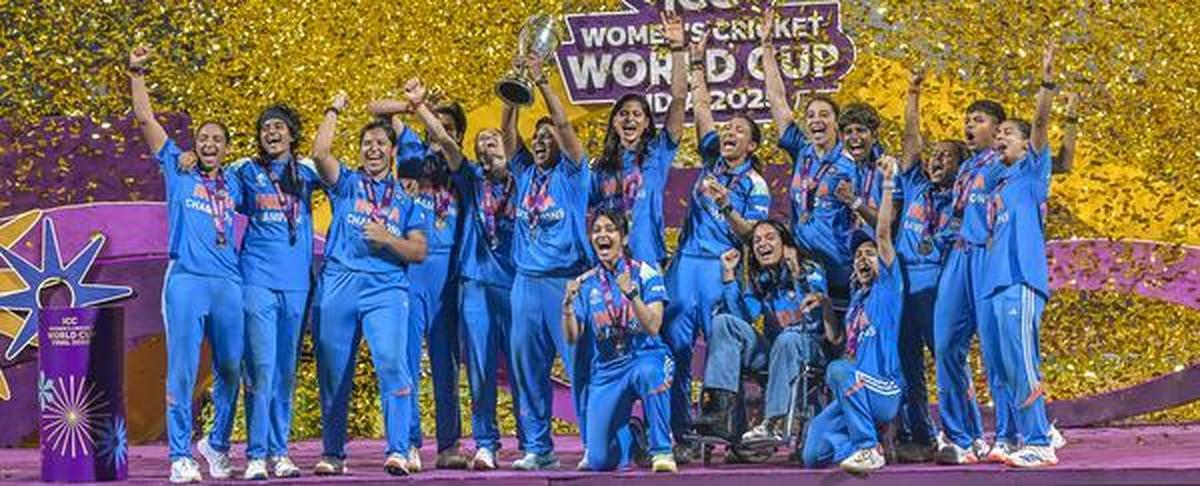
Indian players celebrate with the World Cup.
| Photo Credit:
EMMANUAL YOGINI
It would be wonderful to hear our politicians and the Prime Minister himself let it be known publicly that they do not support any of this chauvinism. Jemimah displayed incredible bravery to go public with her anxiety issues after the semifinal, and had the courage to thank her Lord despite knowing what the reaction would be.
In some ways, women athletes have to work twice as hard as the men to get to the top. This makes them twice as sensitive and thus more likely to speak their minds on issues the men avoid. Till 2016, for example, skipper Harmanpreet’s jersey number was 84, a tribute to those who were killed in the 1984 anti-Sikh riots. After the final, the players were happy to hand over the trophy to former captains Mithali Raj and Anjum Chopra, displaying both gratitude and a sense of continuity.
There is much our women cricketers can teach the men.
Published – November 05, 2025 12:01 am IST


